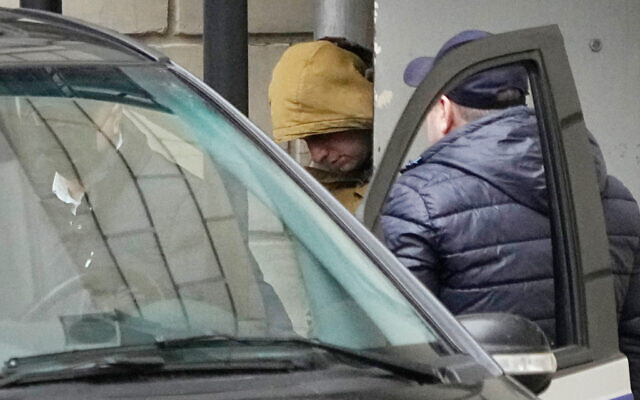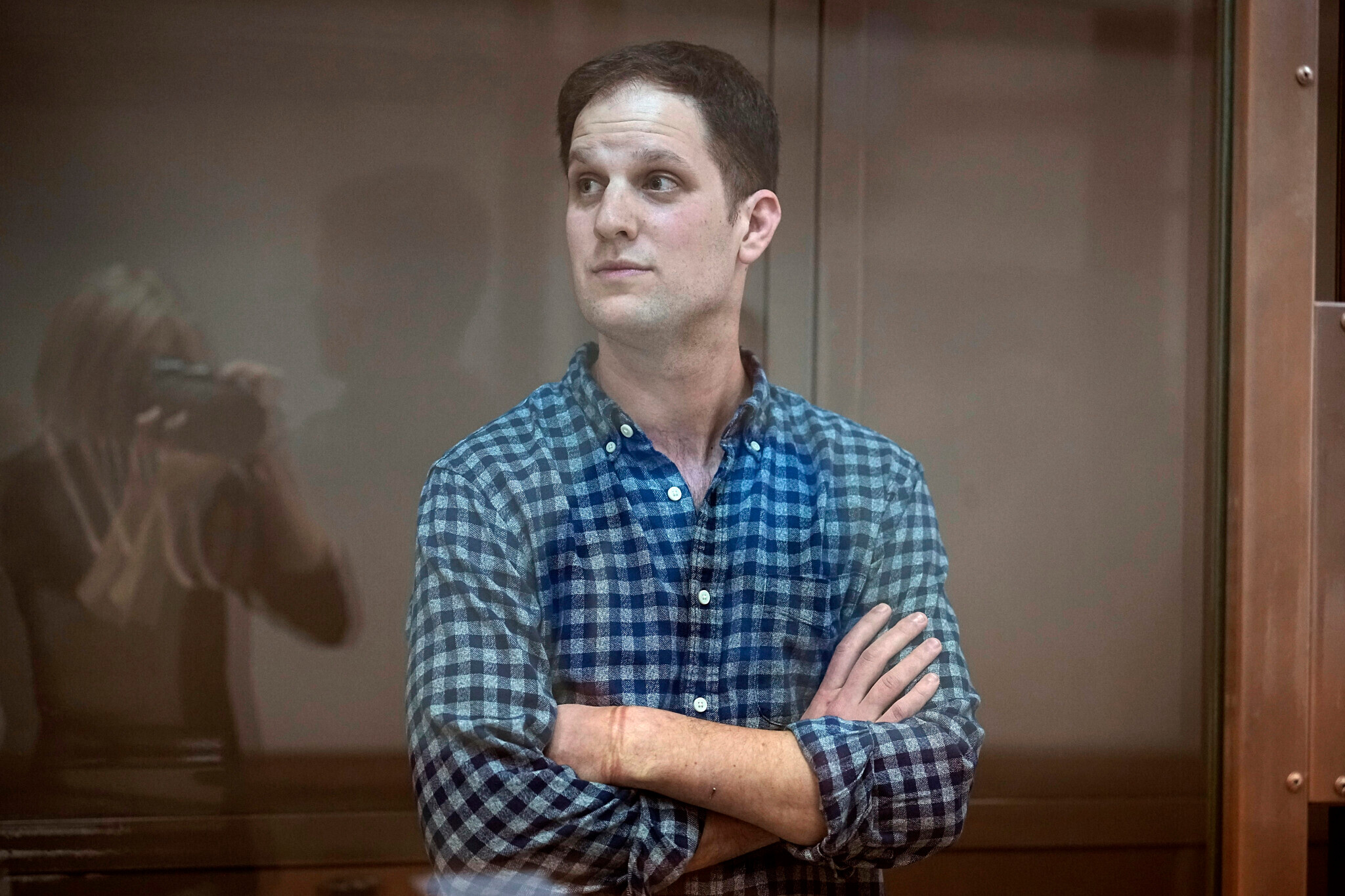“I want to say that I am not losing hope. I read. I exercise. And I am trying to write. Maybe, finally, I am going to write something good.”
These are the words of Evan Gershkovich, hand written in Russian to his family back in the US, dated April 5.
It was the first direct communication Evan had with his family since his arrest in Russia on March 29. The Wall Street Journal (WSJ) journalist has been charged with espionage; the first time such charges have been levelled against a journalist since the Cold War.
Evan has always harboured a love for Russia. His parents, Ella and Mikhail, separately fled the Soviet Union as young adults, as rumours swirled that the Jews were about to be exiled to Siberia. They met in New York, largely assimilating into US culture, but never letting go of their Russian heritage. Evan and his sister Danielle were raised in a home that mirrored this marriage of cultures, even primarily speaking Russian at home.
On March 29, Evan entered a restaurant in Yekaterinburg. He was covering the Russian private military organisation Wagner. Two hours later, his phone was turned off. His family, colleagues and lawyers from the WSJ lost contact with him.
“The children grew up immersed in Russian culture, with borscht, dried fish and sour-cherry dumplings on the table, and their parents’ beloved childhood books—Russian fairy tales and poetry by Korney Chukovsky—on the shelves,” Evan’s colleague Elizabeth Bernstein wrote in a recent article for the WSJ.
This bond with Russia would end up being Evan’s big break. When working for the New York Times, a colleague suggested that Evan use his Russian skills to write about the region.
When he was hired by the Moscow Times less than one year later, his parents didn’t try to talk him out of going to the country that they fled. While they worried, they understood that Russia now is not the same as it was when they were young.
Described as “curious” and “adventurous”, they also knew that there was no stopping Evan.
It was his Russian heritage and language skills that seemed to set him apart from other journalists when he first started in Moscow.
“His Russian got insanely good. He was reading books as fast as he could just downloading Russian culture and getting to that really high fluency level. The passion really developed once he was there and like really immersed and kind of discovering it,” Evan’s sister Danielle told the WSJ in a recent video. “It’s also such a different Russia that my parents knew. He would tell me that he understood certain nuances of what my parents were saying better than he had growing up. He understood a deeper context to it.”
His love for the country only grew as he made new friends and travelled around, becoming a link to the complicated country for those back home.
“We know we are just a niche publication in far away Australia, but every voice counts. As journalists, we support the right of our colleagues around the world to work freely and safely, without fear of sanction or imprisonment.” AJN national editor Gareth Narunsky
But ultimately, it was the WSJ that Evan wanted.
And in January 2022, he achieved his goal, becoming the Journal’s correspondent, covering Russia, Ukraine and the former Soviet Union, working out of the bureau in Moscow.
On March 29, Evan entered a restaurant in Yekaterinburg. He was covering the Russian private military organisation Wagner. Two hours later, his phone was turned off. His family, colleagues and lawyers from the WSJ lost contact with him.
A mere 24 hours later, the Journal confirmed that Evan had been detained. He was being held in Lefortovo prison.
“When I heard the name, it was complete horror,” Ella told the WSJ. Lefortovo has long been the symbol of Russia’s control over its people.

Both Evan and the WSJ vehemently deny the charges of espionage, and the US has officially declared him “wrongfully detained”.
Shortly after his arrest, Evan’s parents received a phone call from Air Force One. President Biden, who told Ella and Mikhail that Evan’s case is personal as he knows firsthand the fear of losing a son, called the charges against Evan “completely absurd”, saying “I’m so sorry. You must be in so much pain”. He warned the pair though, that negotiating their son’s release would be a long and difficult journey.
To campaign for Evan’s release, the Journal has launched a social media campaign using the hashtag #IStandWithEvan.
In the letter that Evan sent home, he tried to keep his parents’ spirits up, lovingly teasing them, writing “mum, you unfortunately, for better or worse, prepared me well for jail food. In the morning, for breakfast, they give us hot creamed wheat, oatmeal, cereal or wheat gruel. I am remembering my childhood.”
He also confirmed that he has received a care package containing supplies including clothes and pens, jokingly saying that he now has “more clothes and stuff than mum and dad at home”. And finished the letter with emotional but comforting words. Understanding that his family were likely very worried, and probably wanted to smack him, he wrote, “don’t worry. You will have your chance to do it”.
Now, it’s just a matter of fighting for what’s right – getting Evan out of prison.
“We know we are just a niche publication in far away Australia, but every voice counts,” AJN national editor Gareth Narunsky said.
“As journalists, we support the right of our colleagues around the world to work freely and safely, without fear of sanction or imprisonment.”
We Stand With Evan.


comments